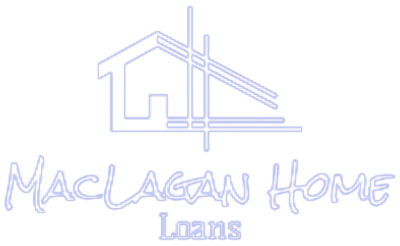When you’re buying a home, choosing the right mortgage is one of the most important financial decisions you’ll make. For many homebuyers, the choice comes down to an FHA vs a conventional loans. Both have pros and cons depending on your credit score, income, and down payment.
In this guide, we’ll break down the key differences between FHA and conventional loans, highlight who each loan type is best suited for, and help you decide which mortgage option makes the most sense for your situation in 2025.
Table of Contents
What Is an FHA Loan?
An FHA loan is a mortgage insured by the Federal Housing Administration. It’s designed to help homebuyers with lower credit scores or smaller down payments qualify for homeownership. FHA loans are popular among first-time buyers and those who may not meet conventional mortgage standards.
✅ Pros of FHA Loans:
- Lower credit score requirements – Approval possible with scores as low as 580 (or even 500 with a larger down payment).
- Low down payment – Just 3.5% down with a 580+ credit score.
- Flexible DTI ratios – FHA may approve higher debt-to-income ratios.
- Competitive interest rates – Often lower than conventional loans for lower-credit borrowers.
❌ Cons of FHA Loans:
- Mortgage insurance premiums (MIP) – Includes both an upfront fee (1.75%) and annual premiums (typically 0.55%).
- Loan limits – FHA caps how much you can borrow, which may not be enough in high-cost areas.
- Stricter appraisal standards – FHA requires homes to meet minimum safety and livability standards, which could mean required repairs.
What Is a Conventional Loan?
A conventional loan is not insured or backed by a government agency. These loans follow guidelines set by Fannie Mae and Freddie Mac and are generally best for borrowers with stronger credit and larger down payments.
✅ Pros of Conventional Loans:
- No mortgage insurance with 20% down – Eliminate PMI by putting 20% or more down.
- Higher loan limits – Ideal for more expensive homes or high-cost areas.
- Flexible property types – Fewer restrictions than FHA appraisals.
- More options – Adjustable-rate and jumbo loan options available.
❌ Cons of Conventional Loans:
- Stricter credit requirements – Usually need a credit score of at least 620.
- Higher down payments for some borrowers – Typically 5%, though first-time buyers may qualify with 3% down.
- Potentially higher interest rates – Especially if your credit score isn’t excellent.
FHA vs Conventional Loan: Side-by-Side Comparison
| Feature | FHA Loan | Conventional Loan |
|---|---|---|
| Minimum Credit Score | 580 (or 500 with 10% down) | 620+ |
| Minimum Down Payment | 3.5% | 3% (first-time buyers), 5%+ others |
| Mortgage Insurance | Required (MIP) | Required under 20% down (PMI) |
| Loan Limits | Lower | Higher |
| Property Requirements | Stricter appraisals | More flexible |
| Best For | Low credit, small down payment | Good credit, higher purchase limit |
FHA vs Conventional Loan: Which One Should You Choose in 2025?
Choosing between an FHA and a conventional loan depends on your financial profile. Here’s a quick guide:
✅ FHA Loan Might Be Right If You:
- Have a credit score under 620
- Have limited funds for a down payment
- Are a first-time buyer or have had past credit issues
✅ Conventional Loan Might Be Better If You:
- Have a credit score above 680
- Can put at least 5% to 20% down
- Want to avoid long-term mortgage insurance costs
- Are buying a higher-priced or investment property
Additional Tips for Comparing FHA and Conventional Mortgages
- Run the numbers: Compare monthly payments including mortgage insurance.
- Think long-term: Consider refinancing later to eliminate MIP or PMI.
- Get pre-approved: Lenders can run both scenarios for you.
- Ask about first-time buyer programs: Conventional loans may offer grants or discounted rates.
Final Thoughts: FHA vs Conventional Loan in 2025
Both FHA and conventional loans have a place in today’s mortgage market. Whether you’re a first-time buyer or a seasoned homeowner, understanding how FHA vs conventional loans differ can help you make the most financially sound decision.
At MacLagan Home Loans, we specialize in matching you with the best mortgage for your needs. Let’s look at both options side by side and see which one helps you reach your homeownership goals faster.
